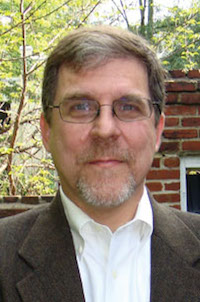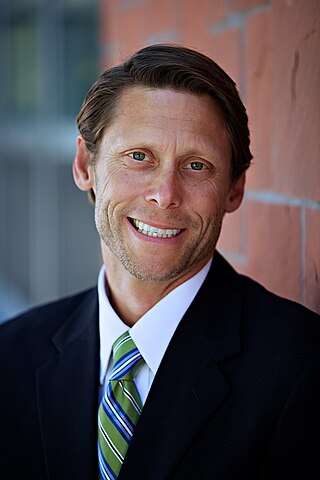Professional Military Education (PME) is the professional training, development, and schooling of military personnel. It encompasses many schools, universities, and training programs designed to foster leadership in military service members.
Military science is the study of military processes, institutions, and behavior, along with the study of warfare, and the theory and application of organized coercive force. It is mainly focused on theory, method, and practice of producing military capability in a manner consistent with national defense policy. Military science serves to identify the strategic, political, economic, psychological, social, operational, technological, and tactical elements necessary to sustain relative advantage of military force; and to increase the likelihood and favorable outcomes of victory in peace or during a war. Military scientists include theorists, researchers, experimental scientists, applied scientists, designers, engineers, test technicians, and other military personnel.
Medical anthropology studies "human health and disease, health care systems, and biocultural adaptation". It views humans from multidimensional and ecological perspectives. It is one of the most highly developed areas of anthropology and applied anthropology, and is a subfield of social and cultural anthropology that examines the ways in which culture and society are organized around or influenced by issues of health, health care and related issues.

The National Defense University (NDU) is an institution of higher education funded by the United States Department of Defense aimed at facilitating high-level education, training, and professional development of national security leaders. As a chairman's Controlled Activity, NDU operates under the guidance of the Chairman of the Joint Chiefs of Staff (CJCS), with Lieutenant General Michael T. Plehn, USAF, as president. It is located on the grounds of Fort Lesley J. McNair in Washington, D.C., near the White House and the US Congress.

The Dwight D. Eisenhower School for National Security and Resource Strategy, formerly known as the Industrial College of the Armed Forces (ICAF), is a part of the National Defense University. It was renamed on September 6, 2012, in honor of Dwight D. Eisenhower who graduated from this school when it was previously known as the Army Industrial College.
The Institute for International and Cross-Cultural Psychology (IICCP) at St. Francis College, New York City was founded in 1998. During its 21 years of existence it has become known for the advancement of cross-cultural psychology and international psychology. Supported by an International Advisory Board of psychologists from six countries, members of the institute have engaged in a series of research projects, edited books on a broad variety of topics in international psychology, sponsored numerous conferences, symposia and colloquia, given lectures at many conferences and institutions around the world, and introduced innovative curriculum development.

Military sociology is a subfield within sociology. It corresponds closely to C. Wright Mills's summons to connect the individual world to broader social structures. Military sociology aims toward the systematic study of the military as a social group rather than as a military organization. This highly specialized sub-discipline examines issues related to service personnel as a distinct group with coerced collective action based on shared interests linked to survival in vocation and combat, with purposes and values that are more defined and narrow than within civil society. Military sociology also concerns civil-military relations and interactions between other groups or governmental agencies.
Karol Girdler Ross is a leading scientist in decision-making research. She received her Ph.D. in experimental psychology from the University of Tennessee and is now a chief scientist for Cognitive Performance Group of Florida and a research psychologist at the Institute for Simulation and Training (IST) at the University of Central Florida. She is currently serving a two-year appointment on the U.S. Army TRADOC Distance Learning Training Technology Subcommittee of The Army Distributed Learning Program and serves on the Defense Regional and Cultural Capabilities Assessment Working Group-Learning Objectives Subgroup. She has conducted research and development for the US Army, the USMC, the US Air Force and the Office of Naval Research. Currently at IST, she provides senior scientist oversight for the USMC R&D Program for Cognitive Skills Training for IED Defeat. Her work currently deals with the oversight of extensive cognitive task analysis of IED Defeat performance, the development and evaluation of performance metrics, multiple training interventions, training effectiveness evaluation, and modeling of cross-cultural competence.

James S. Robbins is an American commentary writer for USA Today and Senior Fellow for National Security Affairs on the American Foreign Policy Council. He is the former Senior Editorial Writer for Foreign Affairs at the Washington Times, an author, political commentator and professor, with a focus on national security and foreign and military affairs. He also served as special assistant in the Office of the Secretary of Defense.
Robert Jackson Alexander was an American political activist, writer, and academic who spent most of his professional career at Rutgers University. He is best remembered for his pioneering studies on the trade union movement in Latin America and dissident communist political parties, including ground-breaking monographs on the International Communist Right Opposition, Maoism, and the international Trotskyist movement.
Luciano L'Abate was an Italian psychologist who worked in the United States. He was the father of relational theory and author, co-author, editor or co-editor of more than 55 books in the field of American psychology.
Comparative election campaign communication research examines how and with what effect election campaigns are conducted in a temporal or spatial comparative approach. Therefore, it focuses on three interrelated dimensions: politics, media and electorate. Spatial comparative election communication research investigates campaign practices, its media responses and its effects on the electorate in different countries.

Shane R. Jimerson is a professor of Counseling, Clinical, and School Psychology in the Gevirtz Graduate School of Education at the University of California, Santa Barbara.
Fathali M. Moghaddam is an Iranian-born psychologist, author, professor of psychology at Georgetown University and director of the Interdisciplinary Program in Cognitive Science (ICOS), Department of Government, Georgetown University.
Darcia Narvaez is a Professor of Psychology Emerita at the University of Notre Dame who has written extensively on issues of character, moral development, and human flourishing.
Barnett Berry is a research professor at the University of South Carolina, where he is the founding director of Accelerating for Learning and Leadership for South Carolina (ALL4SC) — an initiative launched in 2019, to marshal the resources of an entire R1 institution of higher education in service of high need school communities. Barnett's career includes serving as a high school teacher, a social scientist at the RAND Corporation, a professor at UofSC, a senior state education agency leader, and senior consultant with the National Commission on Teaching and America's Future, leading its state partnership network. From 1999 to 2018, Barnett led Center for Teaching Quality website, a non-profit he founded to conduct research and ignite teacher leadership to transform the teaching profession and public education for more equitable outcomes for students. Barnett has authored a wide array of over 120 policy and research reports, journal articles, and commissioned papers. His two books, TEACHING 2030 and Teacherpreneurs: Innovative Teachers Who Lead But Don't Leave, frame a bold vision for the profession's future. He is the 2021 recipient of the James A. Kelly Award for Advancing Accomplished Teaching from the National Board for Professional Teaching Standards and is a policy advisor for the Learning Policy Institute.

Terry A. Osborn is an American academic who is Professor of Education at the University of South Florida and an authority in applied linguistics and interdisciplinary curriculum. He served twice as Interim Chancellor, Vice Chancellor of Academic and Student Affairs, and was previously Dean of the College of Education at the University of South Florida Sarasota-Manatee. Osborn taught public school for six years. He was on the faculties of Fordham University, Queens College of City University of New York and the University of Connecticut.

This is a bibliographyof works on World War II.
Carolyn Marie West is associate professor of psychology, at the University of Washington Tacoma, and was the first holder of the Bartley Dobb Professorship for the Study and Prevention of Violence (2005-2008).
Michael J. Feuer is an American educator, professor and writer, who was president of the National Academy of Education from 2013 to 2017.

Malawi–Turkey relations are foreign relations between Malawi and Turkey. The Turkish ambassador in Lusaka, Zambia is also accredited to Malawi. Malawi is accredited to Turkey from its embassy in Berlin, Germany. Turkey has plans to open an embassy in Lilongwe.